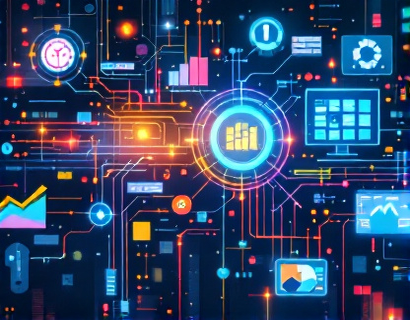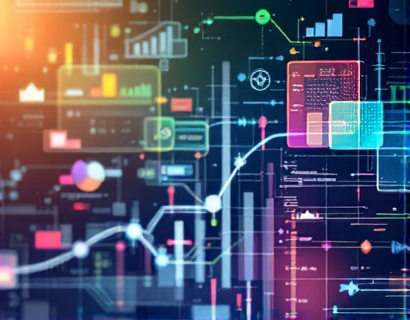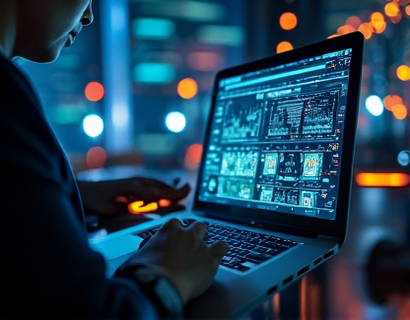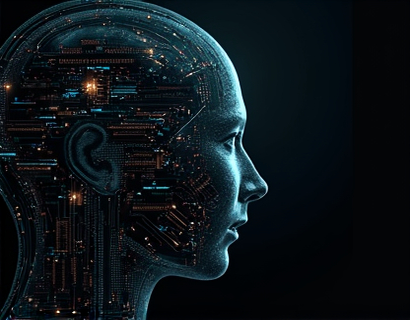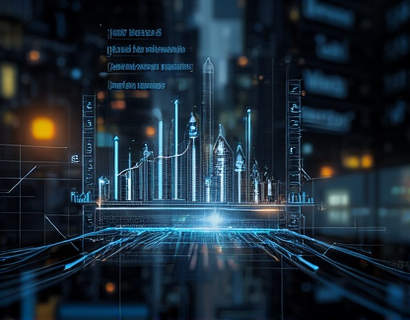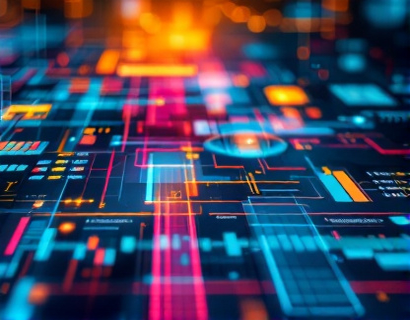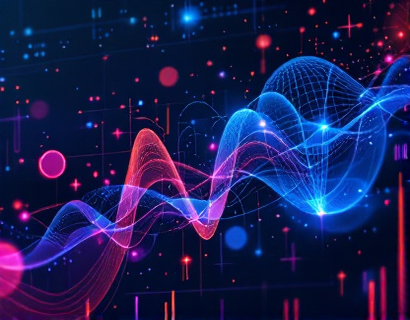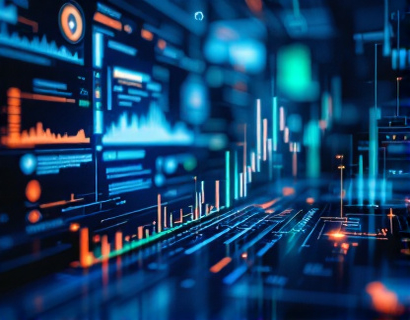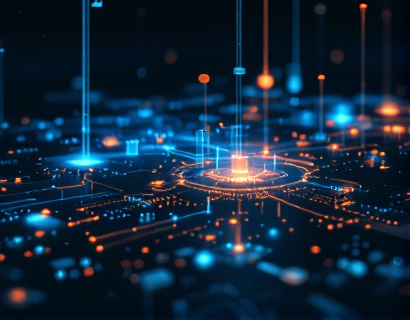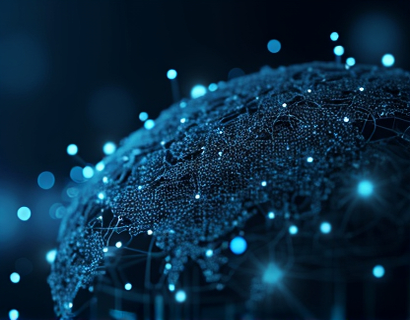Unlocking Next-Gen Ecosystem Engagement Through AI and Crypto Integration
The intersection of artificial intelligence and cryptocurrency is paving the way for a new era of digital ecosystem engagement. This transformative combination is not only redefining how users interact with online platforms but also opening up unprecedented opportunities for tech enthusiasts and investors alike. By leveraging the power of AI and blockchain technology, platforms are creating more intuitive, secure, and rewarding experiences for users. This article delves into the intricate ways AI and crypto are merging to revolutionize user engagement, offering valuable insights for those interested in the future of technology.
Understanding the Basics: AI and Cryptocurrency
To fully appreciate the impact of integrating AI and cryptocurrency, it's essential to understand the fundamentals of both technologies. Artificial intelligence, a branch of computer science, focuses on creating systems that can perform tasks requiring human intelligence, such as learning, reasoning, and problem-solving. AI algorithms can analyze vast amounts of data, recognize patterns, and make decisions with minimal human intervention.
Cryptocurrency, on the other hand, is a digital or virtual currency that uses cryptography for security and operates on a decentralized network, typically a blockchain. Bitcoin, launched in 2009, was the first and most well-known cryptocurrency, but since then, thousands of alternative coins (altcoins) and tokens have emerged, each with unique features and use cases. The decentralized nature of cryptocurrencies ensures transparency, security, and resistance to censorship.
The convergence of AI and cryptocurrency is particularly exciting because it combines the strengths of both fields. AI can enhance the functionality and security of blockchain networks, while blockchain can provide a robust and transparent framework for AI applications. This synergy is leading to innovative solutions that are reshaping various industries, from finance and healthcare to gaming and beyond.
Enhancing Security with AI and Crypto
One of the most significant benefits of integrating AI and cryptocurrency is the enhancement of security measures. Blockchain technology inherently provides a high level of security through its immutable and transparent ledger system. However, as the adoption of cryptocurrencies grows, so do the risks of cyber threats and fraudulent activities. AI can play a crucial role in fortifying these systems.
AI-driven security solutions can detect and mitigate threats in real-time by analyzing transaction patterns and identifying anomalies. Machine learning algorithms can be trained to recognize suspicious behavior and automatically trigger alerts or enforce security protocols. For instance, AI can help prevent double-spending attacks, where a user attempts to spend the same cryptocurrency twice, by monitoring transactions and ensuring their validity.
Moreover, AI can improve the security of private keys and wallet management. By using biometric data and behavioral analysis, AI can enhance the authentication process, making it more difficult for unauthorized users to access sensitive information. This not only protects users' assets but also builds trust in the cryptocurrency ecosystem.
Personalized User Experiences Through AI
AI's ability to process and analyze large datasets makes it an ideal tool for creating personalized user experiences. In the context of cryptocurrency and blockchain applications, this means tailoring services to individual user preferences and behaviors. For example, a crypto trading platform can use AI to analyze a user's trading history and provide personalized recommendations for investment strategies.
AI-powered chatbots and virtual assistants can offer real-time support and guidance, answering user queries and providing insights into market trends. These AI-driven interfaces can adapt to user interactions, learning from each conversation to improve future interactions. This level of personalization not only enhances user satisfaction but also increases engagement and loyalty to the platform.
Furthermore, AI can facilitate the discovery of new opportunities within the crypto space. By analyzing market data and user behavior, AI algorithms can identify emerging trends and potential investment opportunities. This can be particularly valuable for novice investors who may lack the expertise to navigate the complex cryptocurrency market.
Optimizing Network Performance with AI
The performance of blockchain networks is critical for their widespread adoption. Transaction processing speed, scalability, and energy efficiency are key factors that determine the usability of a blockchain platform. AI can significantly optimize these aspects, ensuring a smoother and more efficient user experience.
AI algorithms can be used to optimize block validation and transaction processing. By predicting network congestion and adjusting parameters in real-time, AI can help maintain a consistent block time and reduce transaction fees. This not only improves the user experience but also makes the platform more attractive to developers and businesses looking to build on the blockchain.
Additionally, AI can contribute to the development of more energy-efficient consensus mechanisms. Proof of Work (PoW), the consensus algorithm used by Bitcoin, is notorious for its high energy consumption. AI can assist in designing and implementing alternative consensus mechanisms, such as Proof of Stake (PoS) or Delegated Proof of Stake (DPoS), which are more environmentally friendly and scalable.
Tokenization and AI-Driven Marketplaces
The tokenization of assets is another area where AI and cryptocurrency intersect to create innovative solutions. Tokenization involves representing real-world assets, such as real estate, art, or intellectual property, as digital tokens on a blockchain. This process increases liquidity, accessibility, and transparency in asset trading.
AI can enhance tokenization by providing sophisticated valuation models and market analysis. By analyzing historical data and current market conditions, AI algorithms can predict asset values and identify potential investment opportunities. This can be particularly useful in complex markets where traditional valuation methods may fall short.
AI-driven marketplaces can also streamline the process of buying and selling tokens. These platforms can use AI to match buyers and sellers based on their preferences and risk tolerance, ensuring a more efficient and fair trading environment. Smart contracts, self-executing contracts with the terms directly written into code, can further automate transactions, reducing the need for intermediaries and lowering costs.
Decentralized Finance (DeFi) and AI
Decentralized Finance (DeFi) is a rapidly growing sector that leverages blockchain technology to create financial services without traditional intermediaries. AI plays a pivotal role in enhancing the functionality and accessibility of DeFi platforms.
AI can improve risk assessment and credit scoring in DeFi lending platforms. By analyzing user data and financial history, AI algorithms can provide more accurate credit evaluations, enabling better lending decisions. This not only reduces the risk for lenders but also provides more accessible credit options for borrowers.
AI-driven portfolio management tools can help users optimize their DeFi investments. These tools can monitor market conditions, adjust asset allocations, and provide real-time alerts based on predefined criteria. This level of automation and insight can be particularly beneficial for users who may not have the expertise to manage their DeFi portfolios manually.
Moreover, AI can enhance the liquidity of DeFi protocols by predicting market movements and facilitating automated trading. Liquidity pools can be optimized using AI to ensure that they remain attractive to traders, even in volatile market conditions.
Challenges and Considerations
While the integration of AI and cryptocurrency offers numerous benefits, it also presents several challenges that need to be addressed. One of the primary concerns is the regulatory landscape. The decentralized and borderless nature of cryptocurrencies complicates regulatory compliance, and the use of AI adds another layer of complexity.
Regulators are still grappling with how to oversee AI-driven financial applications, particularly in areas like DeFi. Ensuring compliance with anti-money laundering (AML) and know-your-customer (KYC) regulations is crucial to maintaining the integrity of the ecosystem. Platforms must implement robust AI-powered compliance systems to meet these regulatory requirements without hindering user experience.
Another challenge is the technical complexity involved in integrating AI with blockchain technology. Developing scalable and efficient AI algorithms that can operate on decentralized networks requires significant expertise and resources. Additionally, the interoperability of different AI and blockchain systems is an area that needs further development to create a seamless user experience.
Future Prospects: The Next-Gen Digital Ecosystem
The future of the digital ecosystem is bright, with AI and cryptocurrency set to drive innovation and engagement to new heights. As technology continues to evolve, we can expect to see more sophisticated AI-driven solutions that enhance the security, personalization, and performance of blockchain-based platforms.
One exciting development is the emergence of AI-powered decentralized autonomous organizations (DAOs). DAOs combine the decentralized nature of blockchain with AI-driven decision-making, allowing communities to govern and manage projects collectively. AI can assist in voting processes, resource allocation, and strategic planning, making DAOs more efficient and responsive to member needs.
Furthermore, the integration of AI and cryptocurrency can lead to the creation of new economic models. Tokenized AI models, where AI algorithms are represented as tokens on a blockchain, can enable the trading and monetization of AI capabilities. This opens up new revenue streams for developers and users, fostering a more dynamic and collaborative ecosystem.
In conclusion, the synergy between AI and cryptocurrency is transforming the digital landscape, offering unprecedented opportunities for user engagement and innovation. By addressing the challenges and embracing the potential of this integration, we can pave the way for a more secure, personalized, and efficient future in the digital ecosystem.






